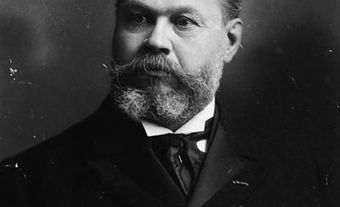This article was originally published in Maclean's Magazine on November 20, 1995
Victoria University: Maclean's 1995 Rankings
Twenty-five-year-old Justine Allen's interest in winning is both professional and keenly personal. For eight months, as a master's student in sports psychology, the Wellington, N.Z.-born woman advised members of British Columbia's ringette team on ways to maintain a focused attitude at the 1995 Canada Games. Allen applies the same principles to herself as a member of the University of Victoria Vikes field hockey team: in early November, she scored the winning goal as the Vikes swept to their fourth Canadian national championship in five years. That victory simply added another layer to Allen's satisfaction with her choice of Victoria, ahead of other schools in several countries, as a place to pursue her studies. Of the Comprehensive university that ranked first in its category, Allen says: "It's not so big that you get lost. But it has all of the facilities you could want - both athletically and academically."
For all the casual friendliness of its campus, Victoria's name commands considerable respect in the academic big leagues. With more than 16,000 students pursuing courses in eight faculties and 12 interdisciplinary research and teaching centres, Victoria has far exceeded its modest beginnings, in 1903, as an affiliate of Montreal's McGill University. Since acquiring degree-granting status in 1963, it has grown into a mature institution with a no-nonsense approach to education and a global outlook that maintains a particular focus on Canada's Pacific neighbors. "It's just an attitude," asserts president David Strong. "If you're going to do something, do it right."
That philosophy is evident in the university's new engineering lab building - not to mention the work its occupants undertake. Although the building is equipped with the latest in fibre-optic wiring and computer-assisted design equipment, when assignments were handed out last January to David Stanonik and three classmates in a third-year mechanical design course, their instructions were down-to-earth: build a device to improve life for the handicapped. The team devised a lever-drive to move wheelchairs forward - and earned a design award from the Canadian Society of Mechanical Engineering.
That emphasis on the practical is further reflected in Victoria's extensive co-operative work-study program - the third-largest in Canada. The university is also the headquarters of Co-op Japan, a program that places students from 17 Canadian universities, including Victoria, in jobs in Japanese industry every year.
The Centre for Asia-Pacific Initiatives, meanwhile, raises funds from outside the university to pay for research and development programs in the Pacific Rim - ventures that often produce dividends for students. Centre director and law professor Bill Neilson, along with B.C. government officials and other Victoria professors, helped legal experts in Vietnam draft several laws as part of that country's drive to liberalize its society. And in October, Vietnamese Chief Justice Pham Hung visited the campus and fielded questions from students of Asian law. Says Neilson: "There are always connections between the work you do out there and the work you do here."
Not every moment on the Victoria campus is spent hitting the books. The beach is just 10 minutes away, and third-year psychology major Julia Wong says that the campus "has the most sunshine of any university in Canada." Says Wong: "A lot of people wear shorts all year round, and everyone's into athletics." At the University of Victoria, that combination of laid-back lifestyle and academic drive clearly makes for a winning formula.
Maclean's November 20, 1995

 Share on Facebook
Share on Facebook Share on X
Share on X Share by Email
Share by Email Share on Google Classroom
Share on Google Classroom

